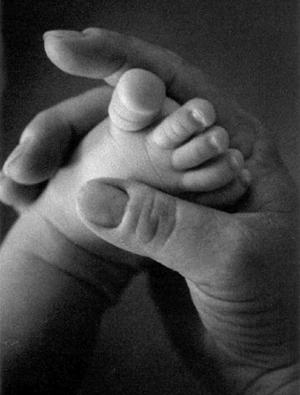The family of the Virginia Tech killer, in a written statement delivered by his sister, confessed feeling  “hopeless, helpless and lost” and “deeply sorry” for her brother’s “unspeakable actions.” After almost a week of silence, the family’s statement opened another potential window into the motivations of a madman. Why did he do it? What caused Cho Seung-Hui to snap? What forces propelled him to such heartless violence?
“hopeless, helpless and lost” and “deeply sorry” for her brother’s “unspeakable actions.” After almost a week of silence, the family’s statement opened another potential window into the motivations of a madman. Why did he do it? What caused Cho Seung-Hui to snap? What forces propelled him to such heartless violence?
Thus, the media and blogosphere are filled with speculation about the killer’s motivations. Newsweek asks What Made Him Do It?, Townhall.com Why Did the Shooter Do What He Did? and The Salt Lake Tribune Why Did Cho Do It?. The answers range from autism to prodromal schizophrenia to demonic possession to bullying. The questions tap into an ongoing cultural dialog concerning culpability and personal responsibility. Who — or what — is responsible for the rampage that killed 32 victims?
Of course, Cho, in his video rant aired by NBC, took no responsibility when he said, “You caused me to do this.” Apparently, he was referring to generic classes (“rich kids”) and societal forces. So, in a sense, “you” means “us”; it is a way to slough off responsibility of any sort. We pulled the trigger. Get it, folks?
I wonder that the media’s march to conclusions has the same effect. Because the secular press eschews moral distinctions — an outgrowth of relativism — it forms answers rather than judgments. So instead of condemning the killer, we try to shift the blame; we look for chemical conditions and social forces, someone or something that will take the actual culprit off the hook.
This is one of the primary differences between conservative and liberal belief systems. While conservatives are motivated by principles; liberals are driven by feelings. As a result, conservatives seek to enforce, but liberals want to to understand. Of course, this is a generalization. Nevertheless, both positions have their strengths and weaknesses, and both are evident in this debate.
are motivated by principles; liberals are driven by feelings. As a result, conservatives seek to enforce, but liberals want to to understand. Of course, this is a generalization. Nevertheless, both positions have their strengths and weaknesses, and both are evident in this debate.
These opposing paradigms are the reason for the divide. Either, the Virginia Tech killer was
- An evil man, or
- A victim
But is there a middle ground? Can Cho Seung-Hui have been both a victim and an evil man? Your answer greatly affects how you live your life, raise your children, and respond to evil. Can bad people be helpless byproducts of their environments and also responsible for their maladjustment? I think it’s possible. . .















What does Scripture have to say?
I think the key is to think AND feel. God gave us both abilities. We should enforce even as we understand.
After all, Mankind is this anomaly–fallen image-bearers of our Creator. As if we weren’t complicated enough, sin mars so that even our best acts from our highest motives are as disgusting, soiled throw-away pieces of cloth.
It is more a wonder that only a handful of people act as Cho did, rather than that he became a murderous perpetrator. God’s grace is still in play.
Becky
Certainly people can be driven to awful things by years of abuse, false-teaching, or other factors. But the Bible says we have the knowledge of God in us. We have a conscience. We have a choice. Perhaps Cho was demon-possessed. Who knows. I don’t claim to have a clue.
Society seems to think that people in general are good. And the people who blow up buildings or molest children or shoot fellow students are bad. If only they understood that we are all bad. There is no ridding the world of evil through education or welfare or “going green.” It’s only by the blood…
I’m sure I got off topic there, but those are my thoughts:)
GerM, It’s the reason why the term “compassionate conservative” was such a big deal. Conservatives got the rap (probably unjustly) that they were more concerned about “principle” than “people.” In other words, they were more concerned about getting the poor off their butts and making them work, than empathizing with their plight. So the term “compassionate” served as a bridge between what had been a perceived disconnect.
I’m not suggesting one camp is more principled than another, but that liberal ideology is what predisposes us, in these cases, to “humanizing” criminals rather than punishing them.